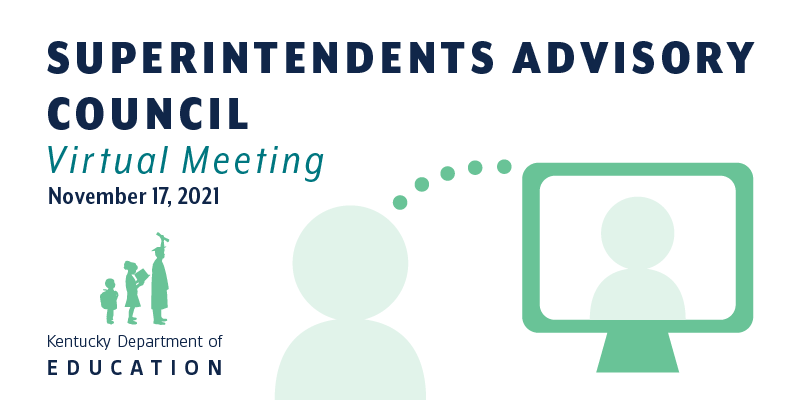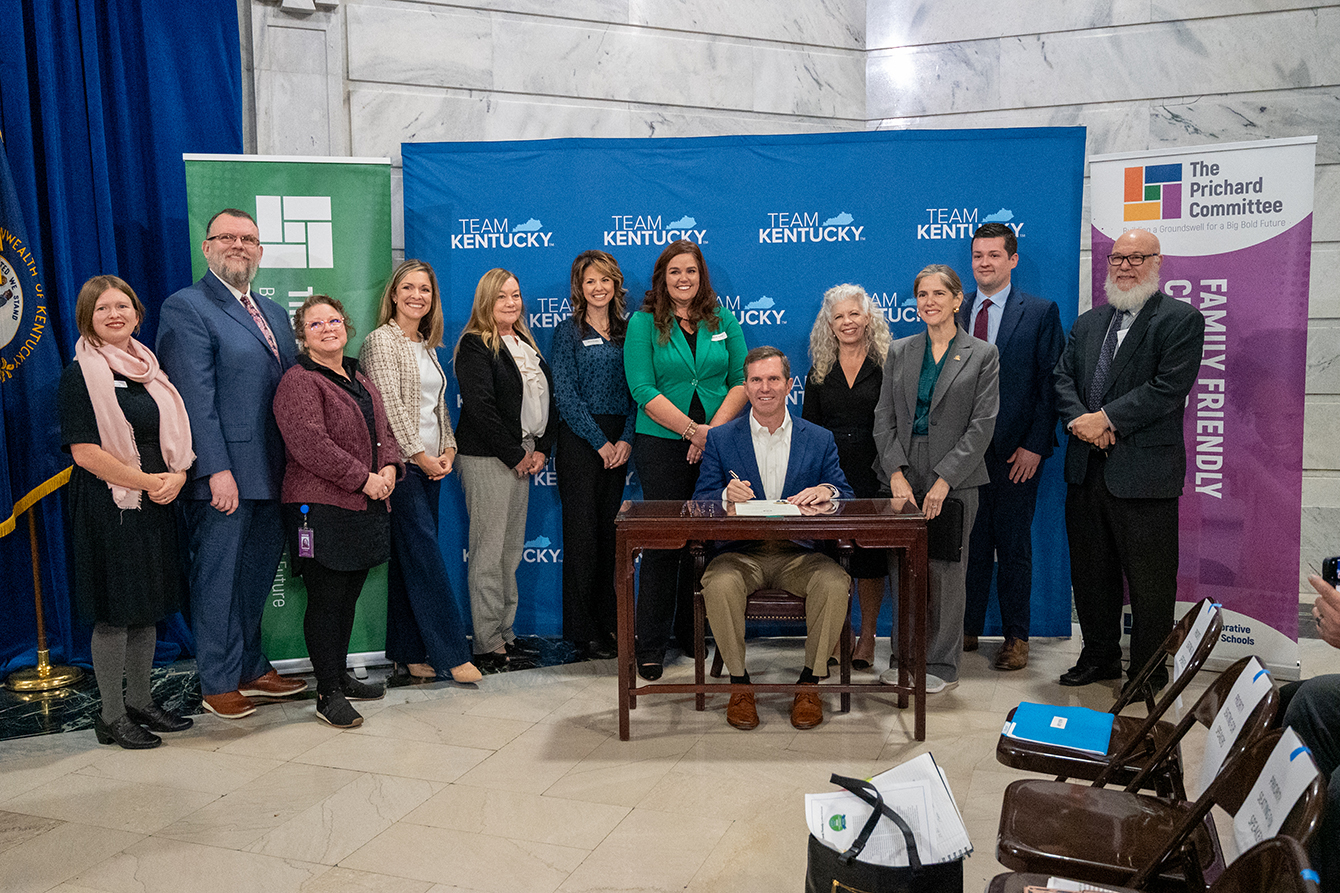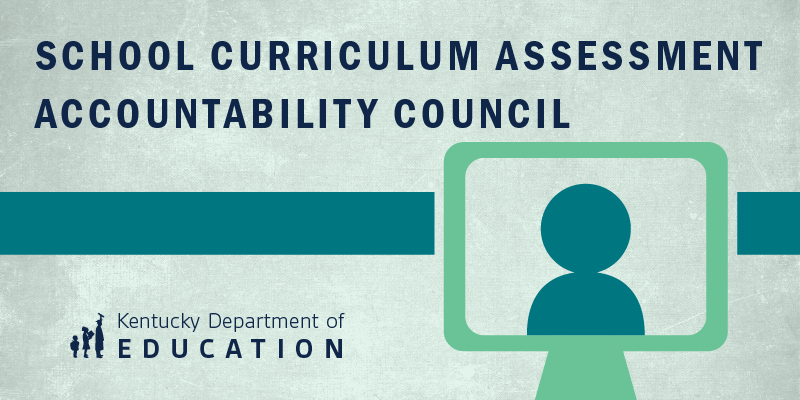 One of the best predictors of student success is the extent to which families are encouraging learning at home, Kathy Burkhardt, senior director of the Learning Grove and former superintendent of Erlanger-Elsmere Independent, told the Superintendents Advisory Council (SAC) during its Nov. 17 meeting.
One of the best predictors of student success is the extent to which families are encouraging learning at home, Kathy Burkhardt, senior director of the Learning Grove and former superintendent of Erlanger-Elsmere Independent, told the Superintendents Advisory Council (SAC) during its Nov. 17 meeting.
Burkhardt joined the council for a discussion on the necessity of family engagement in Kentucky’s education system, as well as to share resources to boost family engagement within local communities.
According to Burkhardt, research suggests that if schools successfully engage families in education, their children are more likely to earn higher grades or test scores, attend school regularly and have better social skills and classroom behavior.
“During the past few years, I think schools and school districts have done more for families than ever before,” said Burkhardt. “A lot of innovation has occurred as a result of the ongoing pandemic. Now is the time to leverage the close relationships that have been developed and the strengths that have been developed from that.”
Earlier this week, Gov. Andy Beshear signed a proclamation designating Nov. 15-19 as Family Engagement in Education Week in the Commonwealth, a statewide celebration of families and schools.
Over the past several months, the Prichard Committee and its Kentucky Collaborative for Families and Schools, which includes both the Kentucky Department of Education (KDE) and Learning Grove, have been working to coordinate a celebration of family engagement in public schools and early childhood centers.
A full schedule of events can be found on the Prichard Committee for Academic Excellence’s website. In addition to the schedule of events, the site also houses many family engagement resources. These resources are broken into age groups ranging from birth to preschool, all the way to college and career.
Another helpful resource is the Family Friendly Schools page on the Prichard Committee’s website, which includes online learning modules, materials to assist with family engagement and information on the family friendly school learning cohort.
Burkhardt encouraged the SAC members to have their schools apply to become a Kentucky Family Friendly Certified School. There are certain requirements that schools must meet to receive the certification. Additional information on how to become a certified Family Friendly School is available on the Prichard Committee’s website, as well.
“All of those resources are available to all schools and all districts,” Burkhardt said. “We’re just happy to share them and help in any way we can.”
High-Quality Instructional Resources
KDE’s Chief Academic Officer Micki Ray provided an update on what the department’s Office of Teaching and Learning (OTL) is doing to support districts in the design of high-quality local curriculum.
Ray began her presentation with a discussion of the Kentucky Board of Education’s resolution on equity in the state’s public schools, specifically the section stating, “every student in the Commonwealth deserves equitable access to effective educators who have unique experiences and perspectives, quality preparation, and are committed to the success of all learners.”
Upon the adoption of the resolution, Ray said OTL thought about what deliberate actions it must take to ensure equitable access to learning for every Kentucky student.
“We feel that starts with local school and district implementation of the Kentucky Academic Standards (KAS),” Ray said. From there, she said the focus becomes providing access to high-quality, standards-aligned instructional resources that are designed to help students meet grade-level expectations found within the KAS.
One of the primary resources available to districts as they design high-quality local curriculum is the Model Curriculum Framework, which is required by state statute and recently was updated, Ray said.
Other resources are available on the KYStandards webpage, including instructional resources alignment rubrics.
“Ultimately, we know that schools and districts have faced many challenges when it comes to instructional resources, and the pandemic only added to those challenges,” Ray said. “… What we’re trying to do is expand our support to schools and districts in evaluating and selecting the instructional resources that are aligned to the KAS, but also promotes student and teacher equity.”
KDE also has developed a high-quality instructional resources strategic plan in the hopes of equipping and empowering local schools and districts in providing educators with access to instructional resources and professional learning opportunities. By July 2022, the department aims to provide local leaders with a consumer guide that will include selection criteria and evaluation tools.
“We know that is needed yesterday,” Ray said. “But, we are taking steps to get that developed and published as soon as possible.”
Additionally, the department is embarking on a pilot program to support schools and districts in the local curriculum development process.
To address the diverse learning needs of students, there is a great need for schools and districts to develop a coherent curriculum that intentionally connects standards, instruction and formative assessment across classrooms, Ray said.
KDE is seeking the participation of up to 32 schools from approximately 12 districts, representing the state’s eight cooperative regions.
The initial professional learning program will focus on the KAS for Reading and Writing. The pilot opportunity will provide free professional learning support to schools and districts aligned with the Model Curriculum Framework.
The application window for the pilot program is open through Nov. 23. KDE will notify the selected participants by Dec. 15. The first program will begin in January, with the conclusion taking place in May 2022. The goal is that a high-quality locally developed curriculum then would be implemented in the 2022-2023 school year, per school-based decision making (SBDM) council approval.
Educator Well-Being
Judi Vanderhaar and Michelle Nichols, both program consultants in KDE’s Office of Continuous Improvement and Success, joined SAC members to discuss the well-being of Kentucky’s educators.
Even before the COVID-19 pandemic, stress was the most common reason for leaving public school teaching early, almost twice as common as insufficient pay, Vanderhaar said. She recommended districts involve teachers in developing responses to reducing teacher stress.
Prior to the pandemic, Kentucky’s educators took part in the inaugural Impact Kentucky survey, where 73% reported they were concerned to some degree about their emotional well-being as a result of their work. In response to this data, Nichols said the department developed a framework to approach educator wellbeing.
“The framework really pulls in strategies and programs that you can implement in the area of compassion, resilience, connection,” she said. “Also, pulling in how you can change some of your systems, processes and the way that we communicate. And, of course, that element of gratitude, recognition and celebration, which is so important, as well.”
The framework features a staff well-being planning tool that provides leadership reflection questions and a 30-, 60- and 90-day planning guide. Schools and districts should contact Vanderhaar if they are interested in utilizing the framework.
With the current iteration of the Impact Kentucky survey underway, Vanderhaar also encouraged SAC members to dive into their district’s data to gain perspective about what their educators have to say.
Michael Ford, a council member and Russell County superintendent, said his district has partnered with the BOUNCE Coalition to focus on trauma-informed practices, something that has benefited the entire community.
Through the district’s partnership with the BOUNCE Coalition, Russell County employees have received trainings, including one on self-care.
“We realize the need for that to continue and to grow that,” Ford added.
SAC Direction and Discussion
To conclude the meeting, Commissioner of Education Jason E. Glass opened up the floor to allow SAC members to discuss how they would like to handle future meetings and provided an opportunity for the council to discuss its direction going forward.
As the council currently meets twice per school year, Robb Smith, SAC chair and Bellevue Independent superintendent, suggested the department provide members with a survey a month before a meeting to allow for members to submit topics they would like to discuss.
The frequency of meetings also was discussed, as Owensboro Independent Superintendent Matthew Constant said he would be open to increasing the number of times the group met from once every six months to a quarterly schedule.
After finalizing the increase in the schedule of meetings and the process for determining future meeting agendas, Boyle County Superintendent Mike Lafavers raised concerns about how inflation will affect public education.
“Food service, construction projects and we’re going to have to give pay raises to staff and they’re going to have to be substantial … I think we have to prepare for (current inflation) to be long-lasting,” he said. “Hopefully, it’s not. It’s just affecting everything.”
Glass said one method to potentially alleviate some of the financial burden districts are facing is for the Kentucky General Assembly to adjust the current Support Education Excellence in Kentucky (SEEK) funding formula. SEEK funds are the primary source of funding for school districts.
“My immediate thought is how can we advocate together for an increase to SEEK that keeps up with inflation,” Glass said. “… I think there is opportunity to do that.”



Leave A Comment